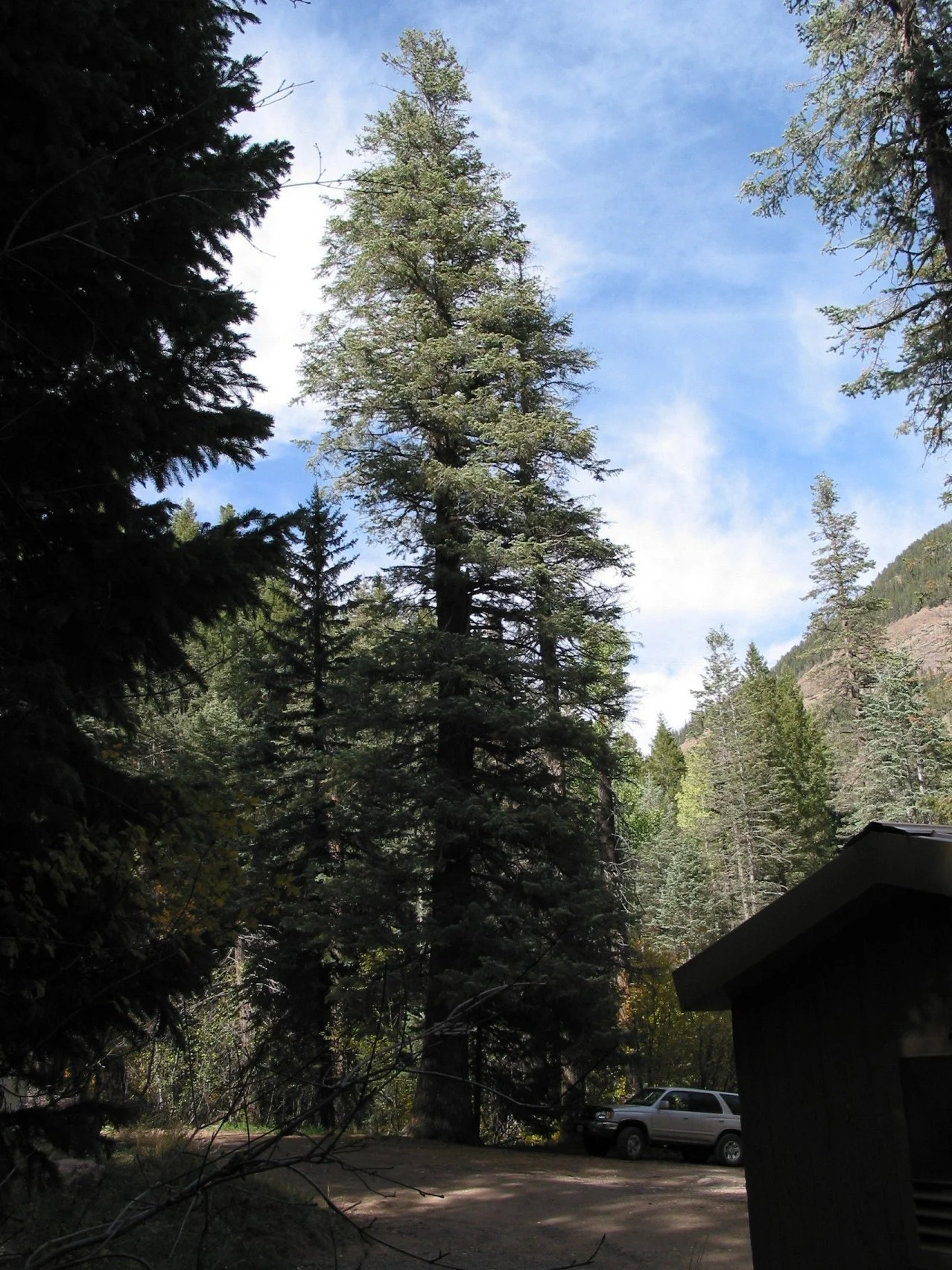white fir (Abies concolor
First place champion white fir in San Juan National Forest.
Species info:
Bark: Thin, smooth, gray, often wrinkled and resinous.
Needles: Flat, soft, silver-green; curve upward; blunt-tipped; 1½–2½ inches long; arranged spirally but appearing two-ranked on twigs.
Branching: Symmetrical with horizontal to slightly upturned branches.
Form: Dense, conical crown—classic “Christmas tree” shape.
Cones: Upright on branches; about 3 inches long; three-pointed seed bracts extend beyond the cone scales, giving a distinctive appearance.
Overall appearance: Light-colored bark and silvery foliage give the tree a bright, clean look; often confused with blue spruce but with softer, flatter needles.
Botanical: Abies concolor
Family: Pinaceae
Mature Height: 30–60 feet (can reach up to 100 feet in native stands)
Canopy Spread: 20–35 feet
Foliage Type: Evergreen (needles retained year-round)
Tree Shape: Symmetrical conical form
Flowers: Inconspicuous (typical of conifers)
Fruit: Ornate upright cones, ~3 inches long, with three-pointed seed bracts extending beyond scales
Fall Color: None (evergreen; foliage remains silver-green year-round)
Water Use: Moderate; prefers well-drained soils, not too alkaline
Hardiness: USDA Zones 3–7
Wildlife Value: Provides cover and habitat for birds and small mammals; seeds eaten by wildlife
Pests/Pathogens: Susceptible to spruce budworm, tussock moth, and Douglas-fir beetle
Recommended for planting:
Information sources: Michael Dirr, Manual of Woody Landscape Plants (University of Georgia, 1990) Ohio State University's Plant Dictionary.


